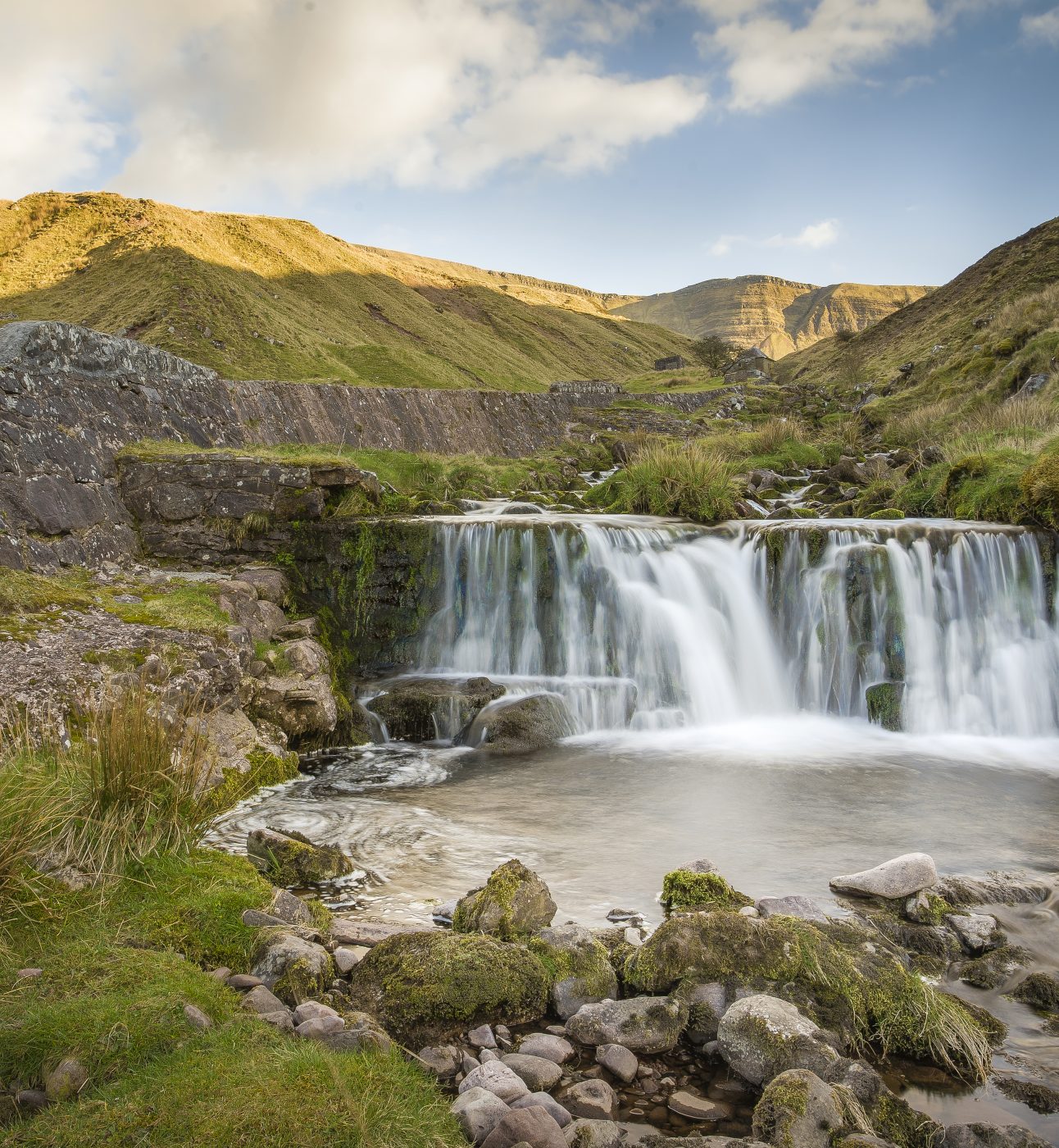
National Park: Rivers at Risk Report Launched
Our new research shows National Park rivers are being failed by government and water regulators and are now under threat.
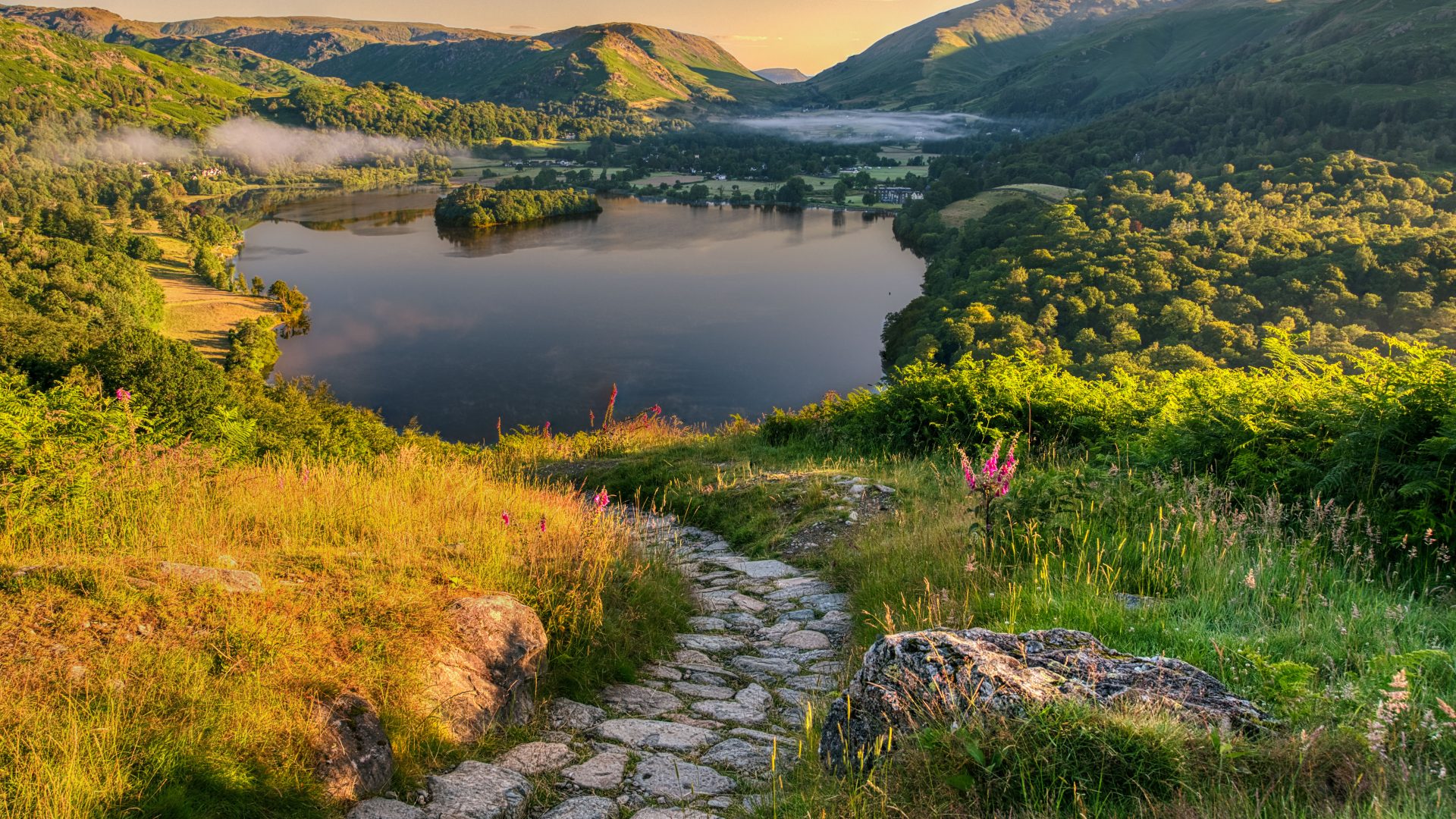
The lakes, rivers and streams in our National Parks are under threat like never before, we explain the issues facing waterways and our work to end water pollution
The waterways of the National Parks are some of the most iconic. The Broads is the most biodiverse wetland in the UK, the mountains of Eryri and the Lake District include spectacular glacial lakes and the South Downs contain a significant proportion of the world’s chalk streams. The uplands of Dartmoor and Exmoor include wet bogs and sensitive headwaters of rivers and the waterfalls of Bannau Brycheiniog are world renowned.
Every year, millions of people explore these rivers, pools, lakes and wetlands, whether that’s navigating their waterways by boat or taking the plunge and wild swimming. These waters are the lifeblood of the National Parks, but they’re under threat.
(Image: Grasmere, Lake District © Rod Hutchinson)
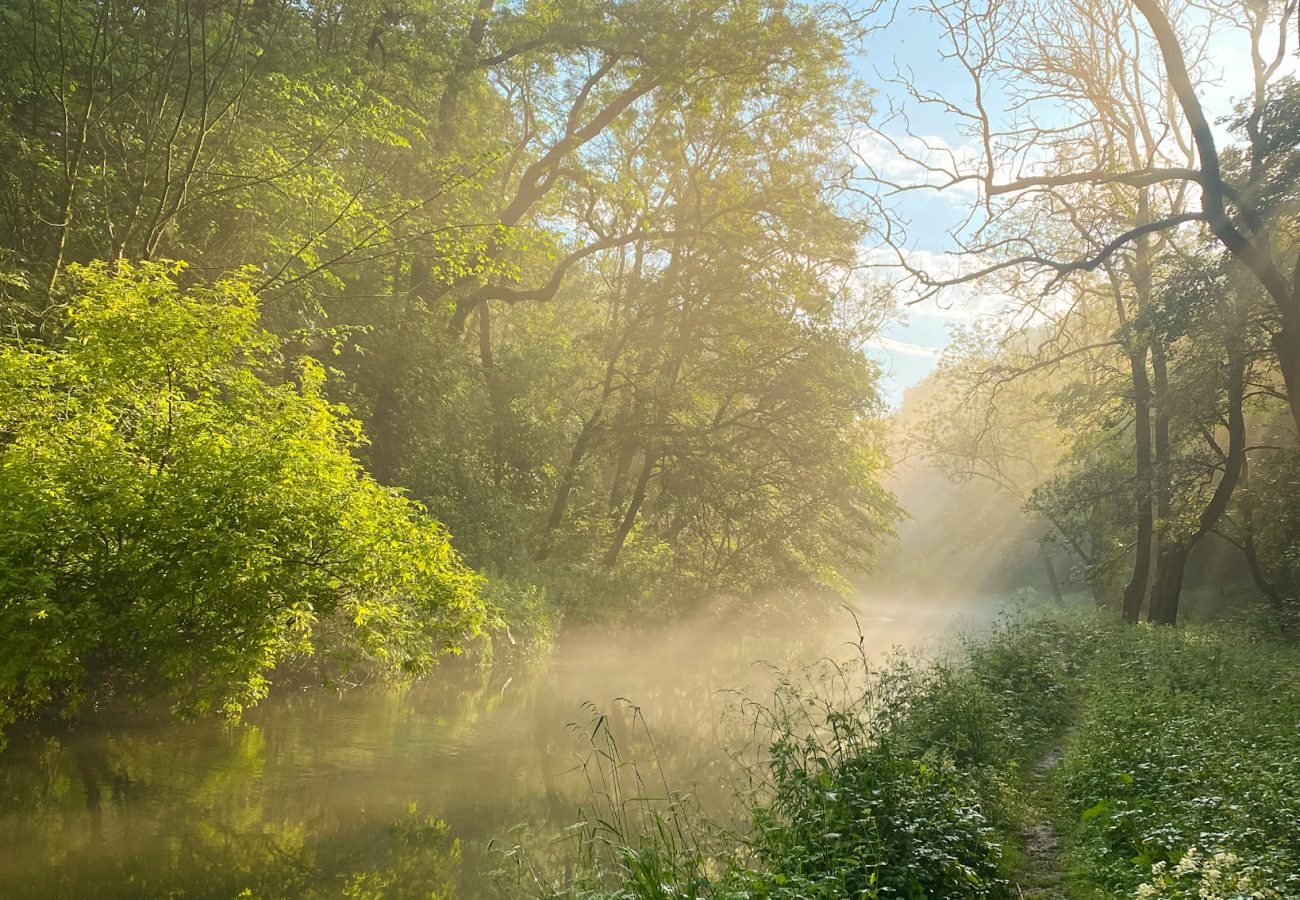
River Wye © Millie BarlowEvery lake, river and stream in England’s National Parks is polluted.
The lakes, rivers and streams within our National Parks deliver a range of benefits. They are home to a huge variety of wildlife, including rare species such as water vole, beaver, bittern, eel and salmon. They provide drinking water to a big part of the UK population, including Manchester, Leeds and Sheffield. They support natural flood management, help tackle climate change, and are, of course, much valued by people as places for recreation and relaxation.
Whether you want to paddle, fish, swim or stroll, there’s something about these blue spaces that bring a whole host of health and wellbeing benefits. The condition of water bodies in National Parks has implications far beyond the boundaries of those Parks with links between the quality of freshwater and the health of our oceans.
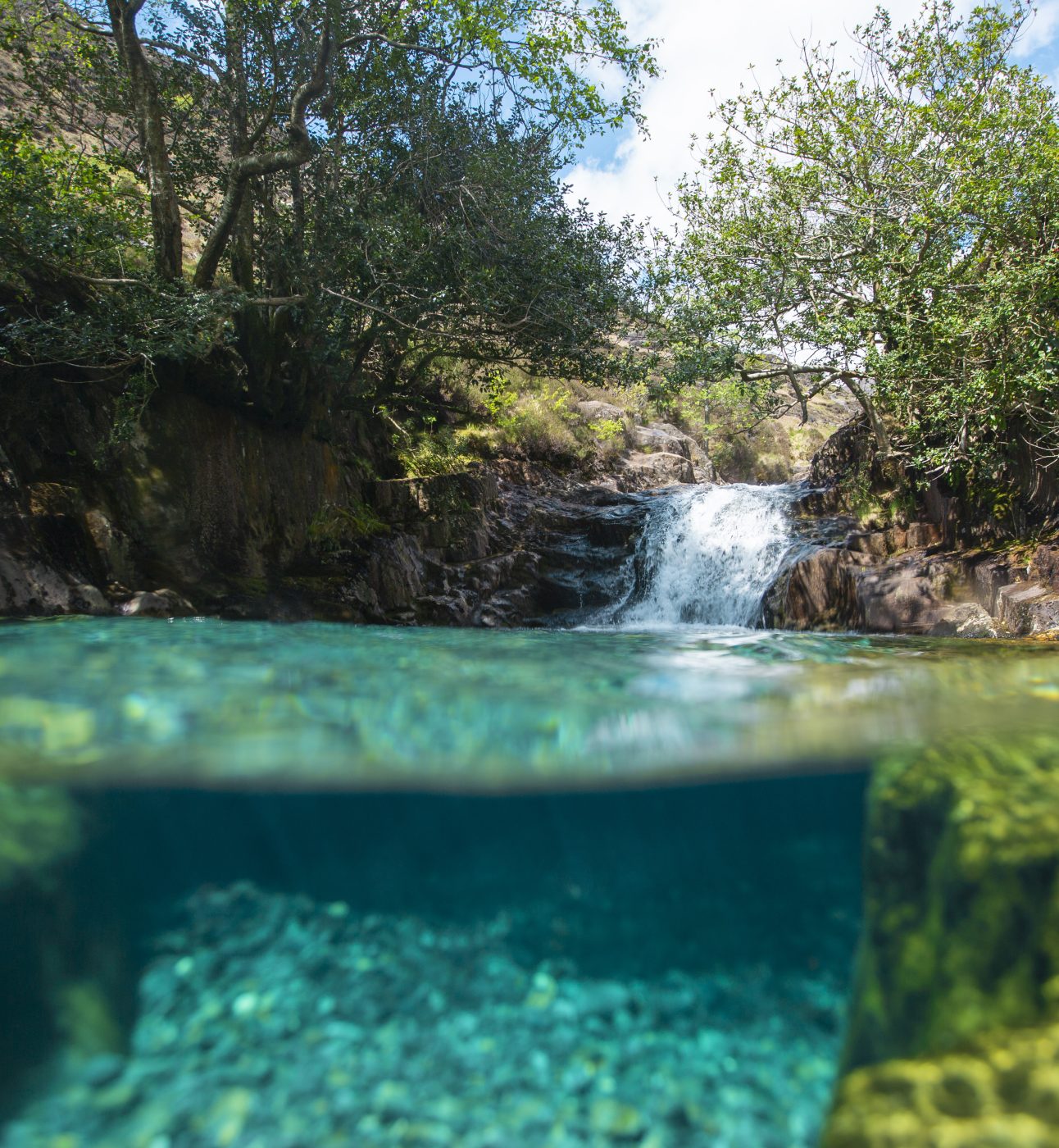
Waterfall in Eryri © Lauren Simmonds
Our Health Check report included the first assessment of the health of waters across all of England and Wales’ National Parks. Of the 880 lakes, rivers and streams across the 13 National Parks, just 5 meet the highest standards we might expect from these protected landscapes.
In England, just 39% of rivers and 15% of lakes within National Parks in an ecologically healthy state, meaning waters are clean enough for fish, bugs and plant species to thrive. The main reasons why the majority of rivers (61%) and lakes (85%) within English National Parks are not in good ecological health are pollution from agriculture and water companies. What’s more, things are getting worse over time.
In Wales, the situation is better, but 49% rivers and 79% of lakes in National Parks are not in good health.
The waters in our National Parks are polluted in many ways. Nutrient and sediment contamination results from agricultural activities, such as the spreading of fertilisers and manures onto fields, which are then washed into nearby rivers and lakes by rainfall. Toxic chemicals can enter from a variety of sources, from pesticides use in agriculture to freshly applied flea and tick treatments on swimming dogs. Pollution from heavy metals from old mine works is another pollutant in many National Park waterways.
Even in the most pristine rivers and lakes in England’s National Parks, traces of toxic chemicals including mercury and other priority hazardous substances are found. Because of these toxic chemicals, which can remain in the ecosystem for decades, not a single water body in an English National Park is in good overall health.
Water company sewage pollution is one of the main reasons for failing health in the rivers and lakes of National Parks in England and Wales. The problem relates to a lack of enforcement and poor water company planning: many sewage treatment works are old and undersized. Perversely, many wastewater treatment works in National Parks are designed to much lower standards than those in towns and cities. This is because under UK law, works serving less than 2,000 people are not legally required to use secondary or advanced treatments. These wastewater treatment works are not designed to deal with the huge numbers of people who visit National Parks every year which means more treated and untreated sewage ends up in lakes, rivers and streams.
Sewage in our lakes and rivers is not only unpleasant but it’s also dangerous. People who swim and want to enjoy the water for recreational activities can become seriously unwell from encountering polluted water. Increased phosphorus levels from sewage can be fatal for nature in and out of the water, causing events such as fish die-offs.
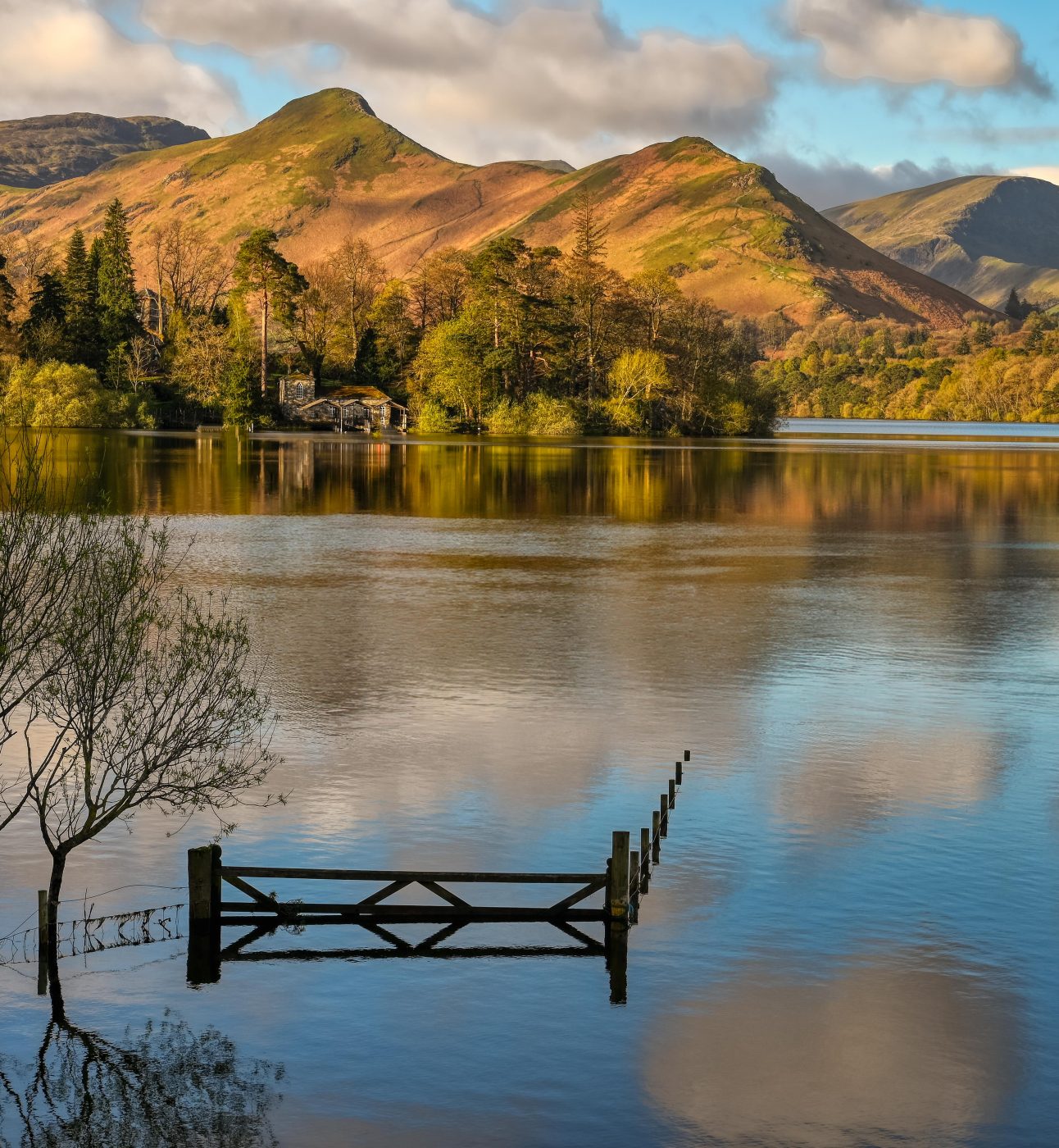
Flooding in Derwentwater, Lake District © Rob Hutchinson
It has been calculated that drier summers could result in some rivers having up to 80% less water in summertime by 2050, increasing the concentration of pollutants and the impact of water being removed for irrigation, industry and other uses. Wetter winters and more frequent intense rainfall result in increased flooding, more chances of untreated sewage releases and more pollutants being washed off fields and roads into nearby water bodies.
At Campaign for National Parks we’re working hard for clean water protections across all our National Parks. For far too long, water companies and regulators have largely neglected and ignored National Park status, and it is time that they recognise this international nature designation. It will be impossible to conserve and enhance wildlife and the natural beauty of the Parks without urgent action on water.
We are calling for strong clean water protections, with legally binding requirements to clean up the lakes, rivers and streams within National Parks. Government, regulators and companies should be required to prioritise National Park waters and take all action necessary to ensure these waterways achieve at least Good Ecological Status by 2027, with High Status achieved in iconic sites such as Lake Windermere and the Broads.
At the end of 2023, our campaigning secured a new law in England that now requires water companies and regulators to take action to conserve and enhance wildlife and enjoyment within the waters of National Parks. We’re now working to secure full implementation and enforcement of this new law.
We also support organisations and individuals who campaign to stop sewage and clean up our lakes, rivers and oceans and we are a proud supporter of Save Windermere. You can help too by supporting our work to clean up National Park waterways.

Our new research shows National Park rivers are being failed by government and water regulators and are now under threat.
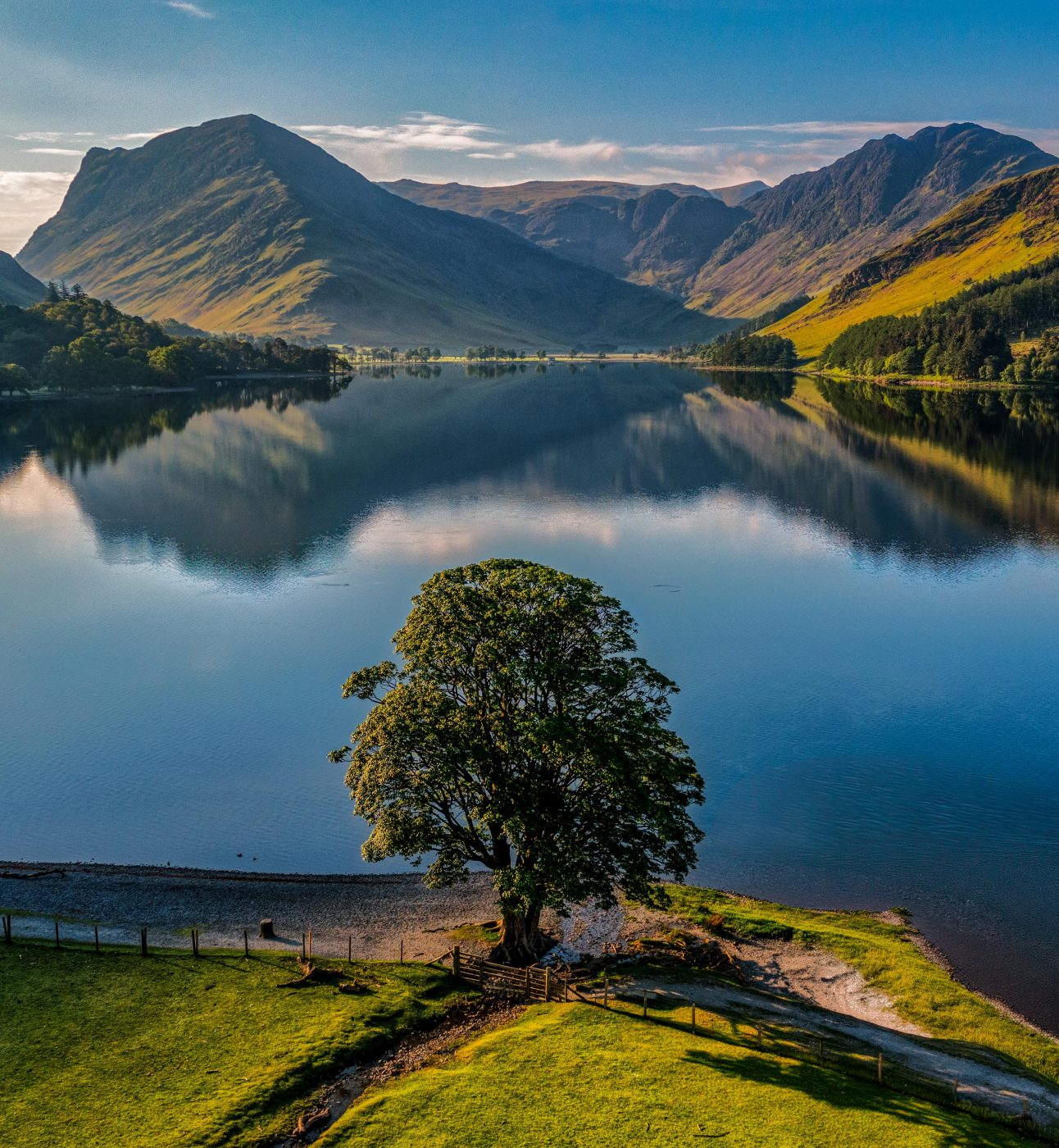
The Cunliffe Independent Water Commission has published recommendations for reforming the water regulatory system, but throughout this detailed report National Parks fail to be mentioned.
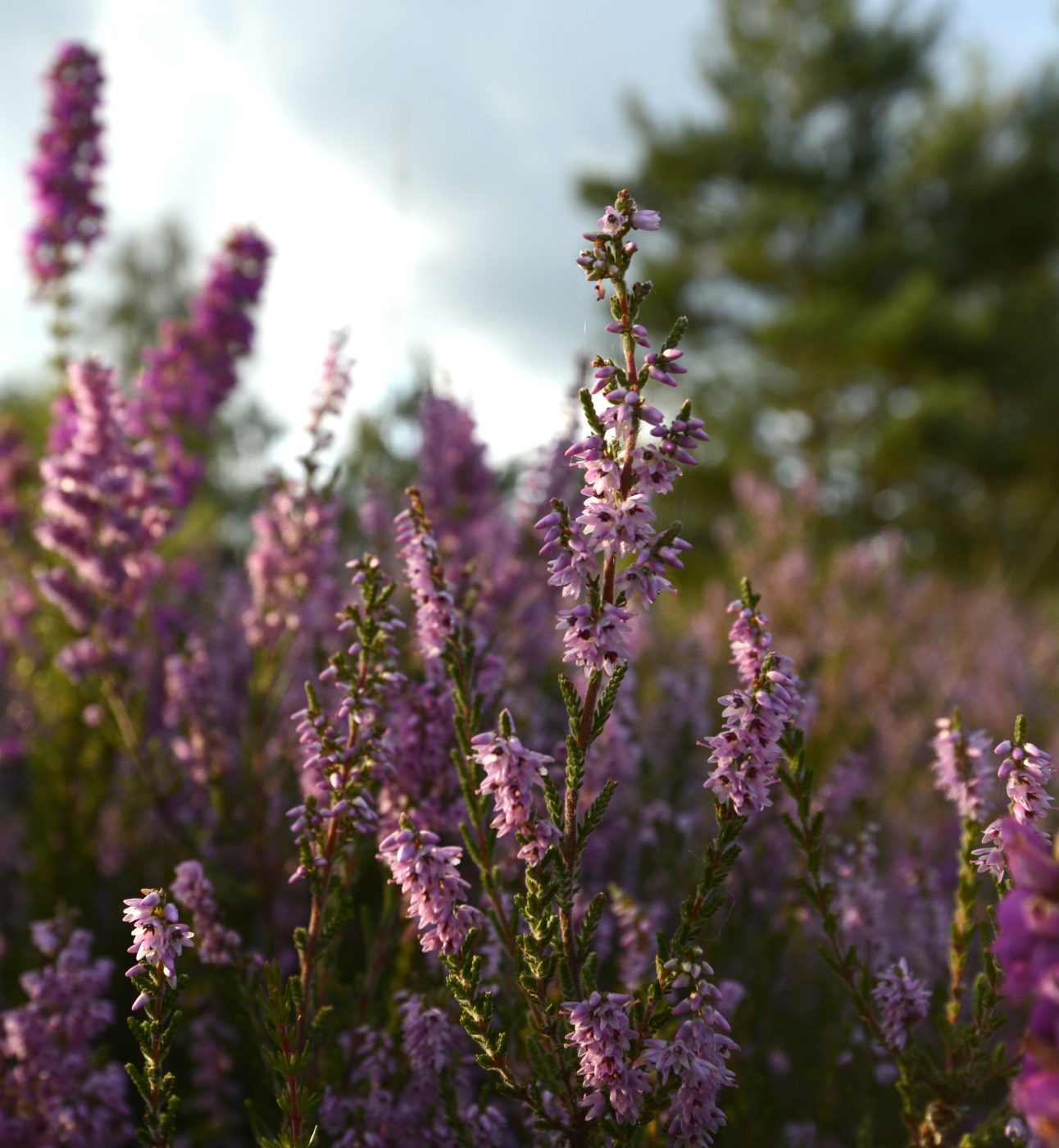
The UK Government has released official data on the state of nature in England’s Protected Landscapes, marking a big step forward in understanding how these special places are faring.